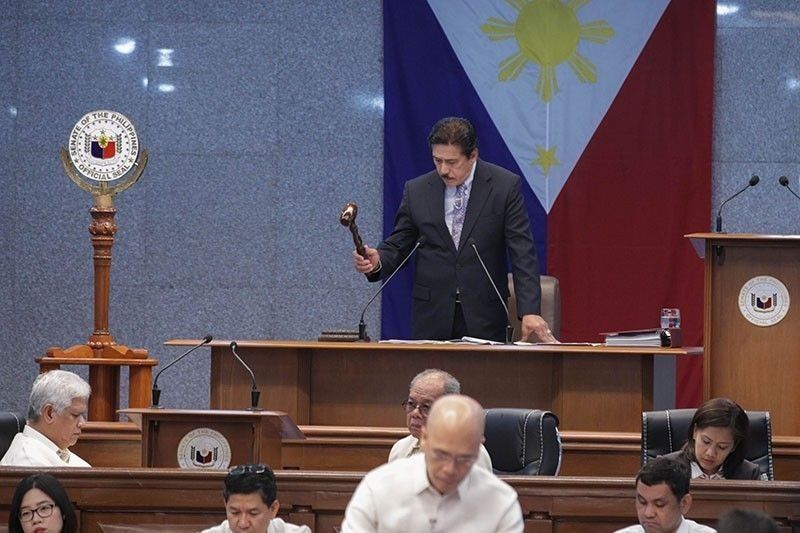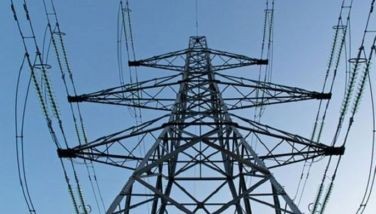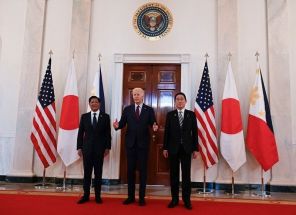18th Congress adjourns 1st regular session

MANILA, Philippines — The first regular session of the 18th Congress adjourned yesterday with the passage of several pieces of legislation, including measures to help the country cope with the impact of the coronavirus disease 2019 (COVID-19) pandemic.
Senate President Vicente Sotto III, in his closing address, expressed gratitude for the cooperation of his fellow senators and for actively participating either physically in the session hall or virtually via teleconferencing during the enhanced community quarantine (ECQ) period.
“I stand with the Senate in the creation of a legislative agenda that is committed to saving lives, maintaining growth in the economy and – for as long as the coronavirus poses a threat to the world – by unifying government policy in anticipation for living in a new world,” Sotto said.
“Let me assure the Filipino people that the Senate is here to ensure that government continues to serve the public’s interest. But let me also say that as dutiful citizens, the Filipino must likewise contribute to this endeavor,” he said.
The Senate, upon resumption of session last May 4, amended its rules to allow plenary sessions and committee hearings to be conducted “hybrid” or via teleconferencing after Metro Manila was placed under an extended ECQ.
Prior to the resumption of session, the chamber passed the Bayanihan to Heal as One Act, which was signed into law last March 24.
The Senate during the hybrid plenary session also passed on third reading Senate Bill 1541 authorizing the President, upon the recommendation of the secretary of education, to move the start of the school year during a state of emergency or calamity.
The measure, which seeks to amend Republic Act 7797, was intended to protect students, teachers and non-teaching school personnel from the threat of COVID-19, he said.
Also approved during its hybrid plenary session was Senate Bill 1354, which aims to impose longer prison sentences and larger fines on individuals found guilty of perjury; and Senate Bill 1318, which seeks to strengthen Republic Act 10068 or the Organic Agriculture Act of 2010.
Early this year, Senate Bill 1083 or the proposed Anti-Terrorism Act of 2020, which repeals the Human Security Act of 2007 and Senate Bill 1233, which expands the use of the legal assistance fund to cover the various costs of OFWs facing legal issues, were also approved on third and final reading.
Since the 18th Congress opened in July 2019, senators filed more than 1,500 proposed measures that are currently in various stages of the legislative process.
The House of Representatives also ended its legislative calendar for the first regular session after approving on final reading key bills for COVID-19 response.
Among the measures passed by the House after five weeks of session was the P1.3-trillion economic stimulus program under House Bill 6815 or the proposed Accelerated Recovery and Intervention Stimulus for the Economy (ARISE) Act.
Wage subsidy
The ARISE bill, introduced principally by Albay Rep. Joey Salceda and Marikina Rep. Stella Quimbo, seeks to provide P155 billion this year to a wage subsidy program for workers of private companies affected by the two-month ECQ as well as cash for work and student loan programs.
The measure also seeks allocation of P140 billion this year for zero and negative interest loan program to be implemented by the Land Bank of the Philippines (LBP) and Development
Bank of the Philippines (DBP) as well as loans for micro, small and medium enterprises through the Small Business Corp. and Philippine Guarantee Corp.
On the other hand, P238 billion would be allotted this year for sectoral assistance programs for specific industries to be implemented by the Department of Trade and Industry, Department of Tourism, Board of Investments and Department of Transportation.
The bill also provides for a P50-billion fund for capitalization to be implemented by the National Development Corp.
The ARISE bill also seeks the appropriation of P650 billion to enhance the Duterte administration’s “Build, Build, Build” program over a period of three years starting in 2021, which is expected to create 1.5 billion jobs.
Lastly, the ARISE bill covers funding of P20 billion for mass COVID testing nationwide.
The House also passed on third and final reading HB 6816 or the proposed Financial Institutions Strategic Transfer (FIST) Act, which aims to help financial institutions in their bad debt resolution and management of their non-performing assets (NPAs) to cushion the adverse impact of COVID-19 pandemic on their financial operations.
It also approved HB 6817 or the “COVID-19-Related Anti-Discrimination Act” filed by Quezon City 6th District Rep. Jose Christopher Belmonte, which seeks to prohibit verbal, physical or psychological harassment of persons who are confirmed, suspect and probable cases of COVID-19, recoveries, repatriated OFWs and health workers.
The chamber also passed HB 6865, or the proposed “Crushing COVID-19 Act,” which requires baseline polymerase chain reaction (PCR) testing for COVID-19 for vulnerable members of society.
The House approved HB 6895 granting President Duterte flexibility in scheduling the opening of classes amid the ongoing COVID-19 crisis and adjusting the school year in the country.
The House was unable to pass the proposed measure extending the national emergency and special powers granted to Duterte to address the COVID-19 crisis for three more months.
It was able to approve only on second reading HB 6953 or the proposed Bayanihan to Recover As One Act, which extends the effectivity of Republic Act 11469 (Bayanihan to Heal as One Act) until Sept. 30.
Salceda and committee on constitutional amendments chairman Rufus Rodriguez called for continuation of congressional sessions after the adjournment sine die so that necessary COVID-19 response measures could be further tackled and finalized.
“We need to pass these two measures by June if we want a V-shaped economic recovery. The economy cannot afford to pass any of these measures later than June,” Salceda explained.
“There are other measures still pending, including various bills mandating the establishment of pop-up bicycle lanes for the duration of the COVID-19 pandemic and my proposal to extend the Bayanihan to Heal as One Act by three months,” Rodriguez added.
Deputy Speaker Mikee Romero also expressed support for the proposal. “We have to do our duties as legislators and make sure these laws are passed before we could go into break and attend to concerns of our specific constituents,” the 1-Pacman party-list representative stressed.
- Latest
- Trending





























